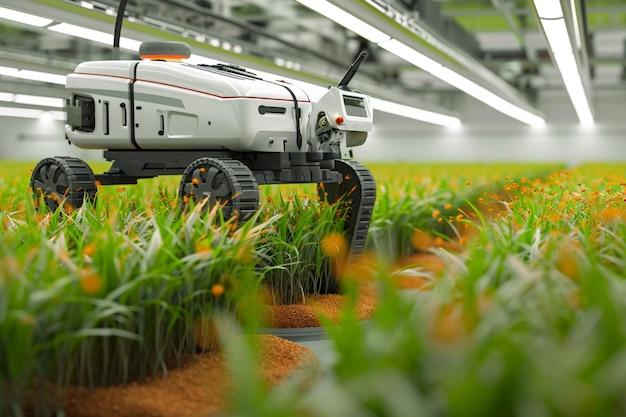In the vast, ever-evolving landscape of modern agriculture, two technological titans stand poised to revolutionize farming: field robots and autonomous tractors. As precision farming enters a new era, these innovative machines promise to reshape how we cultivate, nurture, and harvest our crops. But which technological marvel will ultimately take the lead in this agricultural arms race? The battleground is set, the stakes are high, and the future of farming hangs in the balance, waiting to be defined by silicon, sensors, and smart engineering. As agriculture enters a transformative era, technological innovations are reshaping traditional farming approaches. Field robots and autonomous tractors represent two groundbreaking pathways toward enhanced precision agriculture, each offering unique advantages in addressing modern agricultural challenges.
Field robots emerge as nimble, specialized solutions capable of performing intricate tasks with remarkable precision. These compact machines navigate complex terrains, executing targeted interventions like selective weeding, pest monitoring, and micro-targeted crop treatment. Their lightweight design minimizes soil compaction and enables operation in sensitive growing environments where larger machinery might cause damage.
Autonomous tractors, conversely, present a more comprehensive solution with substantial horsepower and broader operational capabilities. These advanced machines leverage sophisticated GPS and artificial intelligence technologies to execute large-scale farming operations with minimal human intervention. They can precisely plant, fertilize, and harvest across extensive agricultural landscapes, significantly reducing labor costs and increasing operational efficiency.
The technological capabilities of field robots shine in their ability to collect granular data through advanced sensor systems. These compact units can analyze soil conditions, detect plant health variations, and provide real-time insights that enable farmers to make data-driven decisions. Their agility allows for continuous monitoring and immediate responsive actions.
Autonomous tractors excel in scale and power, representing a more traditional yet technologically evolved approach to farming. Equipped with advanced navigation systems and machine learning algorithms, they can optimize routes, manage fuel consumption, and execute complex agricultural tasks with unprecedented accuracy.
Economic considerations play a crucial role in technology adoption. Field robots typically require lower initial investments, making them attractive for smaller farming operations. Autonomous tractors represent a more substantial financial commitment but offer comprehensive farming solutions for large-scale agricultural enterprises.
Environmental sustainability emerges as another critical factor. Field robots demonstrate superior ecological credentials through reduced environmental impact, precise resource utilization, and minimal soil disturbance. Autonomous tractors are progressively incorporating eco-friendly technologies, focusing on reduced emissions and enhanced energy efficiency.
The future likely involves integrated solutions combining field robot versatility with autonomous tractor capabilities. Hybrid technologies could potentially leverage the strengths of both approaches, creating comprehensive precision farming ecosystems that optimize productivity, sustainability, and resource management.
Ultimately, technological advancement in agriculture demands continuous innovation, adaptive strategies, and a willingness to embrace transformative solutions that address global food production challenges while maintaining ecological balance.
